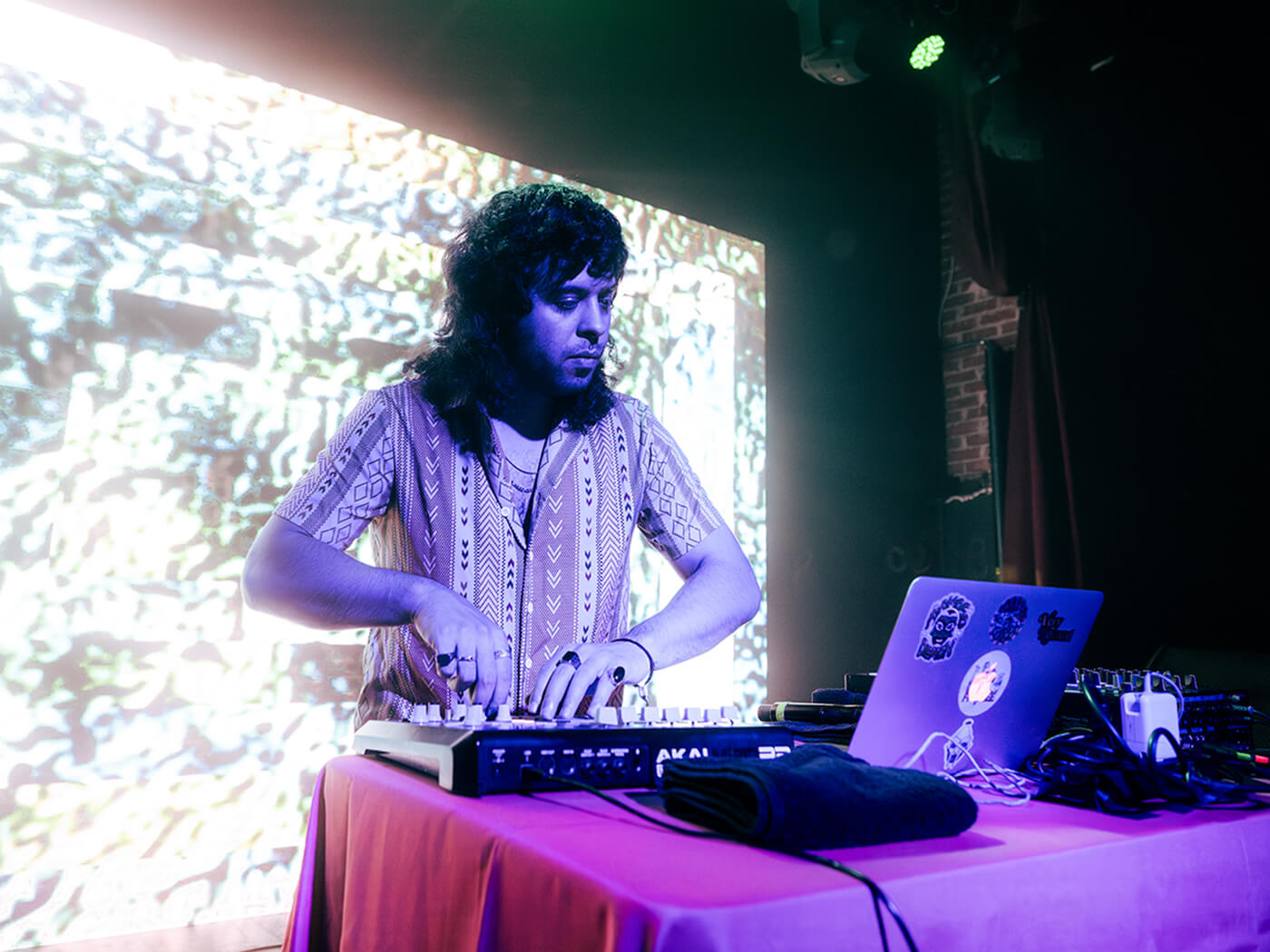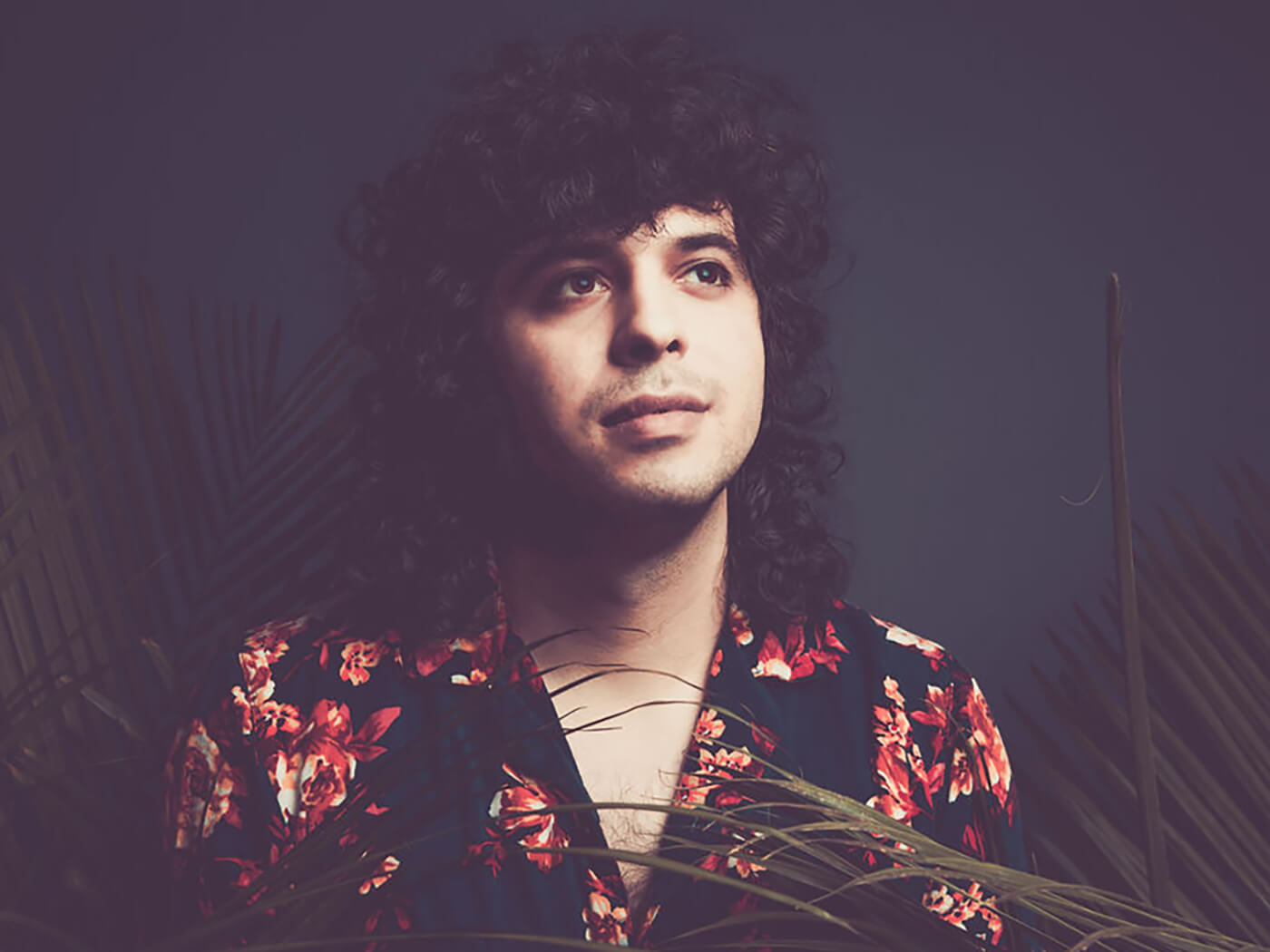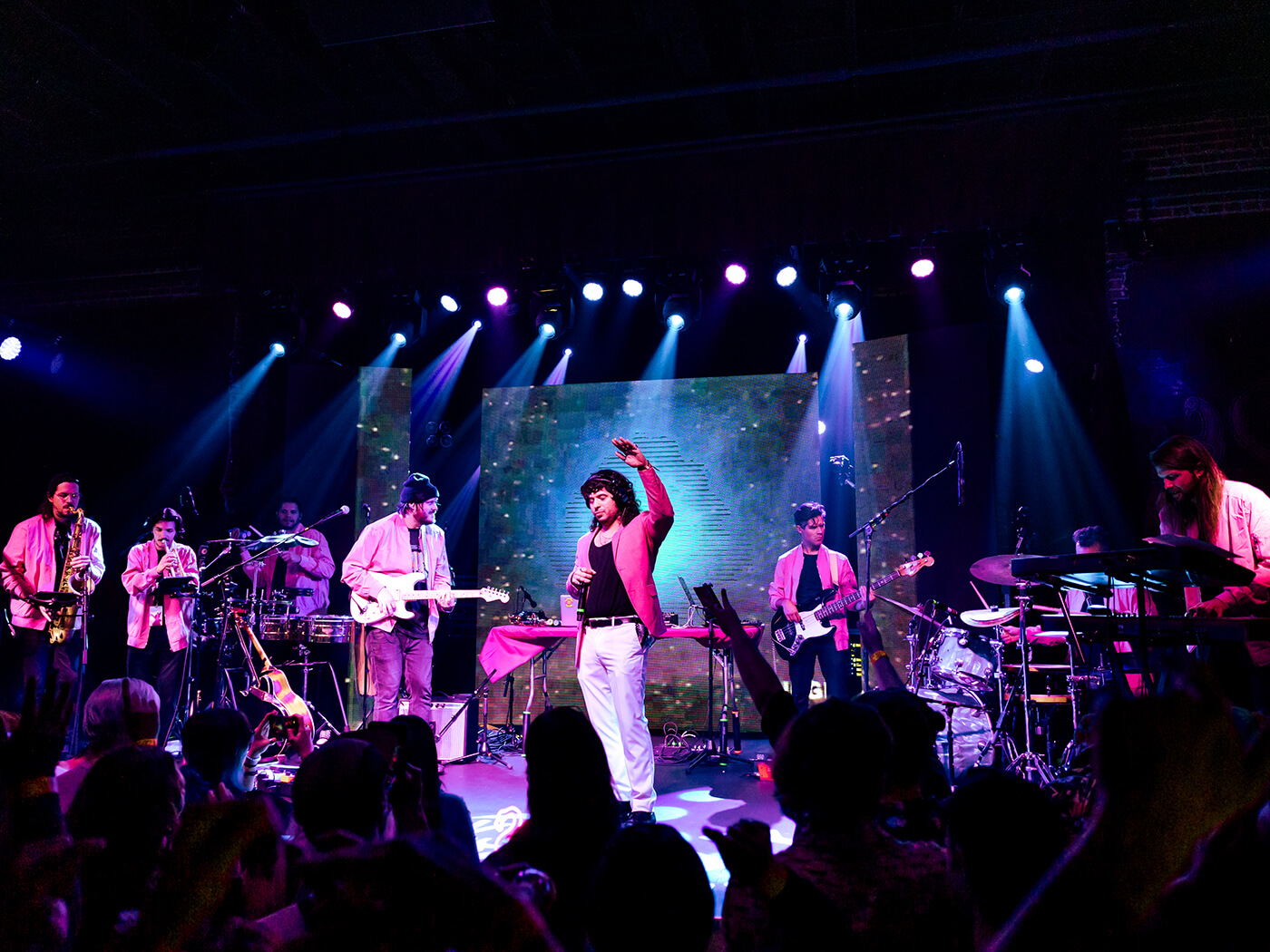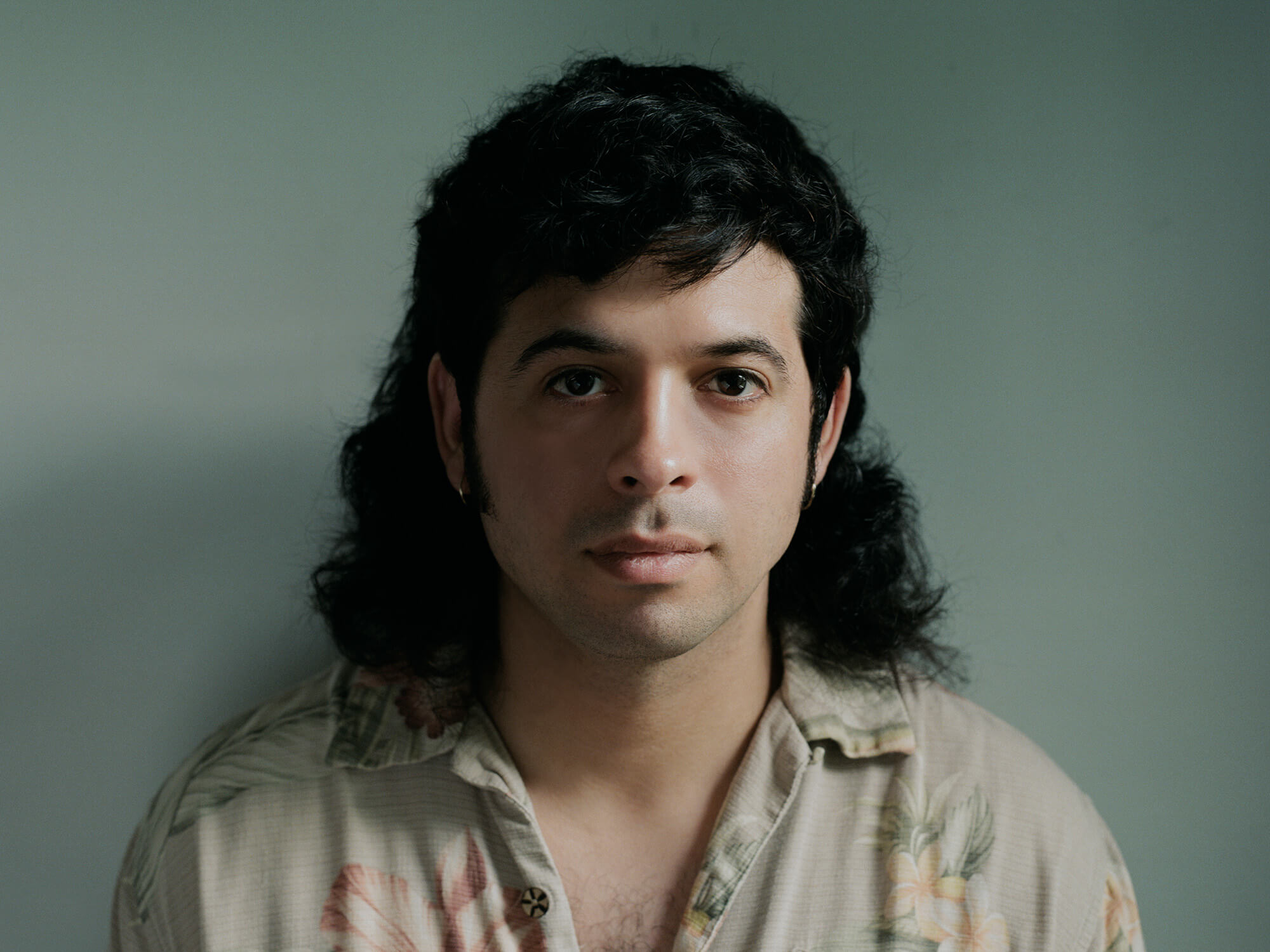
“Sampling will always be a double-edged sword”: Flamingosis talks modern hip-hop production on ‘Better Will Come’
We speak with Aaron Velasquez about the art of sampling, why Ableton Live’s stock sounds are all you really need, and the recording session with Marc Rebillet that was more like a party.
Flamingosis performing
Armed with little more than a MacBook, Ableton Live, and a keen ear for infectious grooves to flip, Flamingosis has 12 albums and 10 mixtapes to his name with over 100m total streams.
Since he started making loops on GarageBand at school in 2008, the New Jersey-born producer has been addicted to beatmaking. In the early 2010s, he was a staple artist on the niche online future funk label Keats Collective and soon found immense independent success after his Hey Arnold-sampled beat, Football Head, went viral, literally overnight. “I uploaded it to SoundCloud, went to bed, and woke up later to it doing really well,” he says. “Then a day later, a friend texted me saying ‘Yo, your beat is on the front page of Reddit.’ It was crazy.”
The secret to the Brooklyn-based producer’s underground success? “I just keep going — just keep making music and uploading…During the early SoundCloud days, I think I was putting out 80 beats a year or something.”
Now, over a decade since his debut album, Aaron Velasquez AKA Flamingosis has released Better Will Come. The LP explores themes of self-love and is, as expected, brimming with playful chops of old-school funk and soul sounds, loose and phat drum beats, and even an appearance from improv master, Marc Rebillet AKA Loop Daddy.
We meet with the supremely chilled-out producer right after his first-ever show in London at the prestigious Camden venue, The Jazz Cafe, to learn how Flamingosis is evolving.
Oh, the name? Flamingosis was the name of a freestyle frisbee move his dad invented in the 80s. It’s totally on-brand.
Flamingosis: “I try to implement the frisbee aesthetic into every album just because of how it relates to my family’s history. Because the Flamingosis move is a reverse spinning catch on one leg — that’s how you catch the frisbee — and while you’re on one leg catching the frisbee, it’s supposed to look like you’re a flamingo.
MT: There’s definitely a strong aesthetic to Flamingosis. Every project has that element of nostalgia, with 80s-style artwork and samples, but also with a contemporary edge.
Flamingosis: “Yeah, it’s always been predominantly funk, soul and groove music, but I try to have it be a little bit more peculiar sounding. And that’s just from listening to records and bands that were a little bit more obscure, or just from different countries, where you can tell the funk just sounds different.”
It sounds like you’ve mixed samples and recorded live instruments in a studio for Better Will Come, compared to the strictly sample approach in your earlier works…
“Right — I worked with a handful of session musicians for this album and [2021’s album] Daymaker. So instead of sampling stuff, I work with the musicians and we make more original compositions from scratch, or almost like an interpolated composition of past samples, but so it sounds different and its own thing. And then when we record that, I’ll get the stems of guitar, bass, drums, piano, et cetera. And then I chop it, as if it’s a sample, and arrange it.”

“I’m also combining the studio session instruments with a sample, where they’re both playing at once or there’s one section. Like there’s one section where it’s just the studio session instruments and then it transitions into the sample, the sample and then a transition into the sample and the session.
How did Marc Rebillet fit into this? Was it an online collaboration for Feel Yourself or did you manage to get into the studio?
“Well, I caught Marc at a good time to work on the track [Feel Yourself]. Because he’s a very, very busy guy. But, yeah, this happened in 2022. He’s been working on his solo album, which isn’t out yet, and he was doing some studio sessions in Brooklyn and [producer and Flamingosis collaborator] The Kount is helping record and arrange and produce everything for his album. So, during that time, The Kount hit me up and told me what they were doing. They said I could come through if I wanted to.
“It was a really interesting recording session because they invited fans to come and see the recording process. And they brought a bartender to serve drinks to the fans as they watched it unfold. I haven’t seen anything like that [laughs] — it was kind of like a party.
“Then after those sessions were done I said to Marc, ‘Hey, I’m working on something myself, would you like to be a part of it?’ And he said yes so we found a date and recorded in person. We didn’t have a lot of time — like I said, he’s a busy guy. He only had maybe a couple hours, so we really had to come up with an idea quickly.
“I showed him some ideas, plus a beat I started working maybe like, an hour before going to the studio. And he liked that the most. So we’re like, ‘Okay, just sing whatever!’ Improvisation is his thing, so I told him the whole theme of the album and he got the gist of that in the lyrics. And he’s basically singing the hook a hook. But it worked, I think.”
An hour before?! How long do you usually take to put a track together?
“Some tracks I get the idea of what I want to make very quickly and it all flows very easily — how I want to loop everything, arrange it, how I want to add the effects, the drums, all that. And then I just export it, and then I never go back to it again. But then there are others where it just feels more difficult. It usually still works out in the end but just takes more time, maybe weeks.
“Sometimes it just doesn’t work in that moment in time. Sometimes you just push through it, and then it just starts sounding good, but then there’s other times where a few days later, you go back to it, and then it works. Or sometimes if it doesn’t work, you just take everything out. And then just start from the beginning.”
Do you have many moments where you find a sample or an idea that doesn’t work at all, but you revisit it, like, a year or so later and figure it out?
“Oh, absolutely. One of the tracks on Better Will Come, was exactly like that. I think I came back to it maybe two years later. It was just one of those little loops where there was definitely something there but the way I had to chop it up and rearrange everything was just very intense and time-consuming. And I feel if it’s that intense and time-consuming. I can’t be lackadaisical; I have to be very focused.”
“But I try to not hold onto things for too long. A lot of people hold on to music for too long and then time passes and it’s still not out and…
Then it hangs around in this untouched folder for years, right?
“Yeah. And I still have some tracks that I made years ago that are still not out. But I also have a big output of other stuff that I just put out. Especially during the early SoundCloud days, I think I was putting out 80 beats a year or something.”

You still upload to SoundCloud pretty often. Is it still a good place for you to connect with your audience?
“There’s definitely an audience on there, but the majority moved to other streaming services. I also feel like the bigger artists are just more embedded in the SoundCloud algorithm.
It feels like peak SoundCloud was a special time for music producers. I remember tales of artists like DJ Boring uploading a track, going to sleep, waking up and it’s gone viral
“That is exactly what happened to me with Football Head.
“I spent a few hours on it and then, right after I finished it, I uploaded it. And then I went to bed. And when I woke up later, it was doing really well. Then a day later, a friend texted me saying ‘Yo, your beat is on the front page of Reddit.’ It was crazy. I remember when Kaytranada told the story of when he uploaded that Janet Jackson – If remix — it was a similar thing.”
Football Head is still going strong, too. It’s got 13 million views on one YouTube video. What made you want to flip the Hey Arnold soundtrack?
“I always remembered the Hey Arnold music being really good but what brought me back to that track was a post on Facebook by the rapper/producer, Jonwayne. He posted the original song Groove Remote by Jim Lang. I remember listening to it thinking ‘Has anyone has anyone made a hip-hop beat out of this?’ I just felt like I had to do it before someone else did. I think that’s why I put out so quickly.”
Do you run into many clearance issues when using more obscure samples?
“Oh, man. I don’t want to get too into it. But at this point [in my career], sampling will always be a double-edged sword. Eventually, later down the line [after a track’s released], people will reach out and say, ‘Hey, we heard our artist’s song in your track. We got to work something out,’ which is fine. But a lot of people always say ‘Why isn’t this track on Spotify and all platforms?’ I just want to reply like, ‘Hey, if you want to clear the sample I can go ahead and put it up.’ [laughs].
Was it a new challenge to integrate the live session recordings into this album?
“Yeah, there’s a couple of tracks where it just took me a while to figure out how I’m gonna arrange it [in a way] that would be effective. It felt like a really complicated puzzle. I mean, Ableton can feel like that sometimes — just a puzzle.”

So you’re pretty much just on Ableton — are you using any other software?
“It’s just all in Ableton and I just use the default stuff. Honestly, those stock sound instruments are not bad at all. Also, all the stock effects and stock mastering presets are all good yeah to me. It all gets the job done and that’s what I’ve been using for years.
“The most important thing is creating a solid idea, arranging it so it has a beginning, middle and end — so I feel like the track tells some sort of story — and then making sure all the levels sound good to me. And if it feels good. Maybe technically, it doesn’t sound super polished or whatever but if it feels good, and it sounds cohesive, and it makes me feel a certain powerful way.”
Is there anything you wish you’d told yourself as a producer when you first started?
“Yeah, just make the music that you want to hear, first and foremost — it’s okay to make stuff that other people want to hear but make sure that you also want to hear it. And just keep putting out music. Don’t hold on to it for too long. And if you are holding on to something to save for later, work on other stuff to put out immediately because, life is like…we don’t got a lot of time, you know?”
Check out Flamingosis’ catalogue at Bandcamp.
This interview has been condensed and edited for clarity.